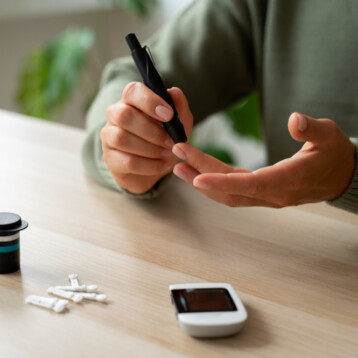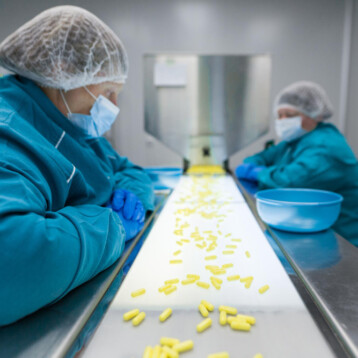Professor Wenyuan Shi, Chairman of the Oral Biology Department at the UCLA School of Dentistry, was looking for a new therapeutic approach to dentistry. He decided to look at Chinese herbal medicines, hoping to develop an effective, inexpensive, easy-to-produce nutritional supplement.
Over the years, more than 5,000 Chinese herbs have been used to create and refine more than 100,000 formulas to fight various types of infections. After determining the top 400 most commonly prescribed and effective herbs in traditional Chinese medicine, Professor Shi used an anti-cavity biological assay developed at UCLA to test them for anti-microbial effectiveness against S. mutans.
Finally, he determined that an extract of licorice root (Glycyrrhiza uralensis) is effective against tooth-decaying bacteria, providing the scientific basis for the ancient practice of chewing licorice root. “This was particularly charming because in both Chinese and in Western cultures, people have been chewing it maybe for the taste, but it also has a lot of good health reasons. It stimulates saliva flows, has anti-bacterial properties and keeps bacteria from adhering to your teeth”, explained Professor Shi.
C3 Jian is currently working with a candy manufacturer on the healthy lollipop’s production. It is recommended to eat one lollipop after breakfast and another one before going to bed at night for a period of ten days. Then, in order to maintain the treatment’s effectiveness, one should eat a lollipop about 2-4 times a year. “The difficulty there is that the support staff keeps eating them!” said Professor Shi.
Dr. Maxwell Anderson, President of C3 Jian and a dentist himself, notes that the lollipop might also be affective against strep throat caused by streptococci, the same bacterial genus. In addition, the licorice root extract is effective against Heliobacter, a bacteria associated with stomach ulcers.
“We’ve turned an old fashioned candy into a high technology delivery device”, concluded Anderson.
As a result of Shi’s study, an herbal library, useful for researches studying other diseases, was established. He also gave samples of the licorice extract to UCLA teams studying the immune system, cancer, and aging.
More information on the herbal lollipop can be found on C3 Jian’s website.










